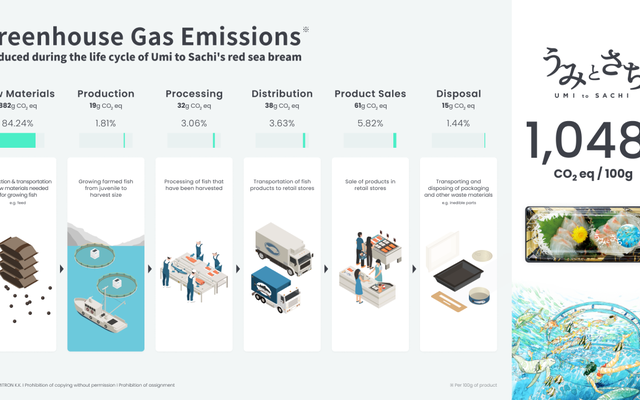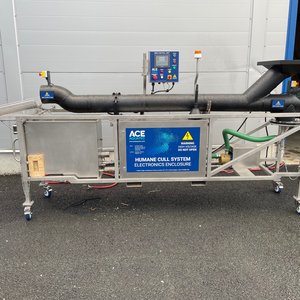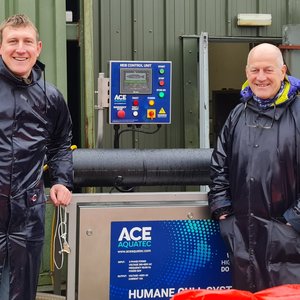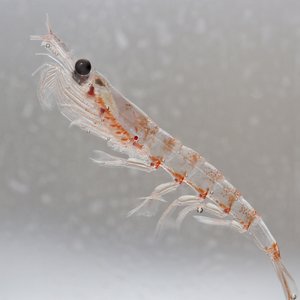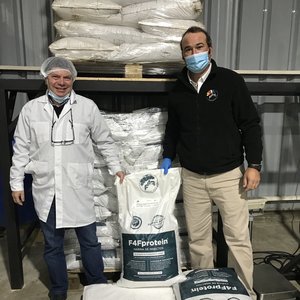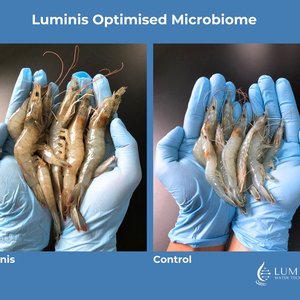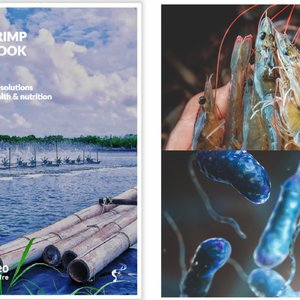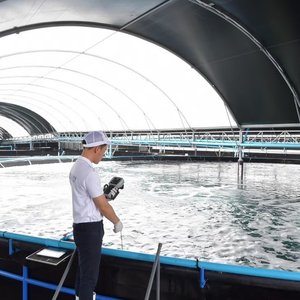Umitron recently assessed the environmental footprint of the use of Umitron Cell on an ASC-certified red sea bream farm in Japan. The life cycle assessment measured greenhouse gas (GHG) emissions produced across the product’s value chain, from raw material procurement to end-use and disposal. The analysis showed that Umitron Cell, Umitron’s AI-powered smart feeder, reduced feed-related GHG emissions by 20% compared to conventional automatic feeders.
The life cycle assessment showed that GHG emissions ASC-certified red sea bream were approximately 1,048 g CO2 eq per 100 g of product. The analysis results also showed that procurement of raw materials, mainly for fish feed, accounted for more than 80% of the product’s total GHG emissions.
When compared against conventional automatic feeders, Umitron Cell was able to decrease GHG emissions by about 20% (240 g CO2 per 100g of product). This is because it uses an AI-based Fish Appetite Index (FAI) to analyze fish behavior during feeding and can minimize the amount of feed wastage in the water, the company said.
The 20% reduction roughly translates to about 1 hour of home air conditioner use. In the future, Umitron is planning to add more data on GHG reductions for products farmed using Umitron Cell.


